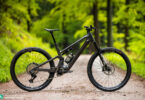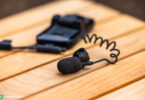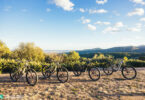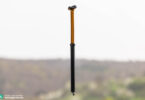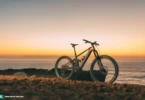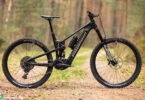Never Stop Learning – The Interview: MTB marathon legend Karl Platt and Le Mans winner Jörg Bergmeister
We headed to Southwest Germany’s Palatinate region to chat with the MTB marathon legend Karl Platt and Le Mans winner Jörg Bergmeister about success, competitive genes and our survival instinct. While down there, we progressed from the theory of dealing with setbacks straight into a practical lesson on the subject. Oh, we also took our bikes and a Porsche for a spin!
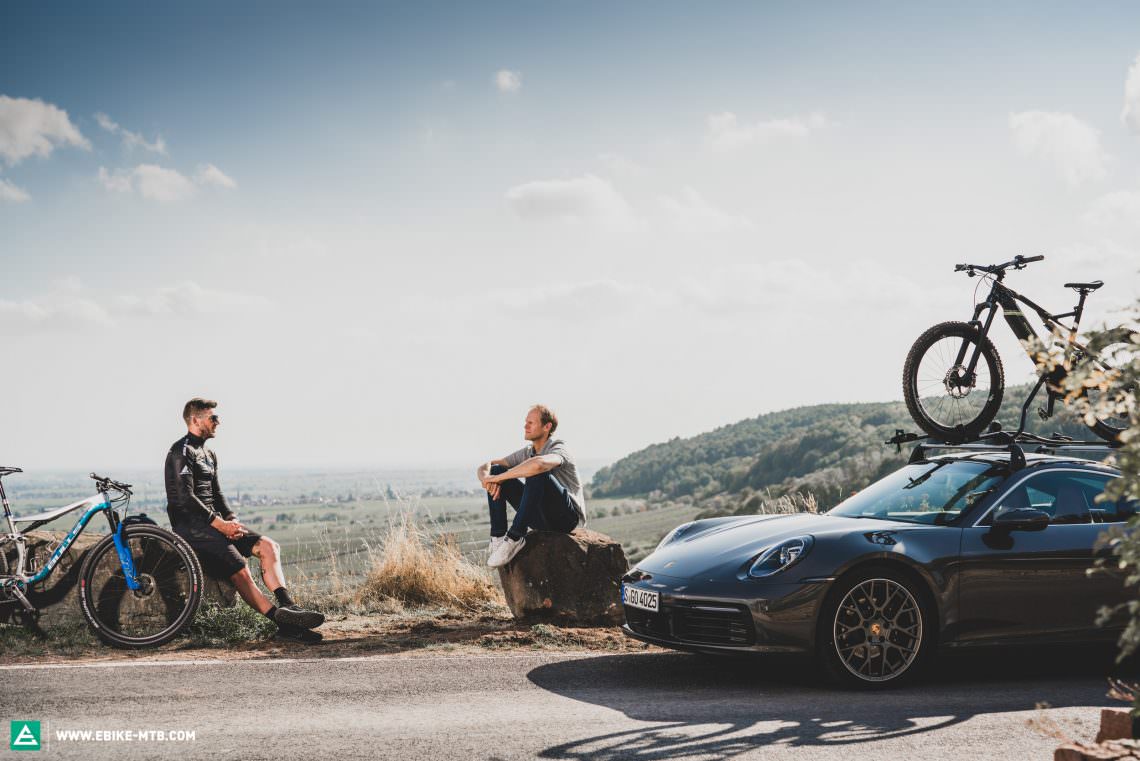
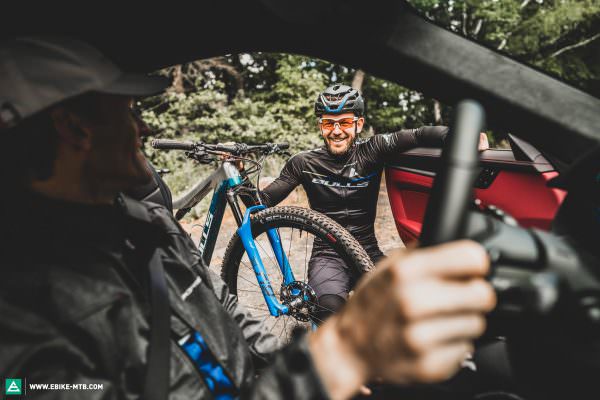
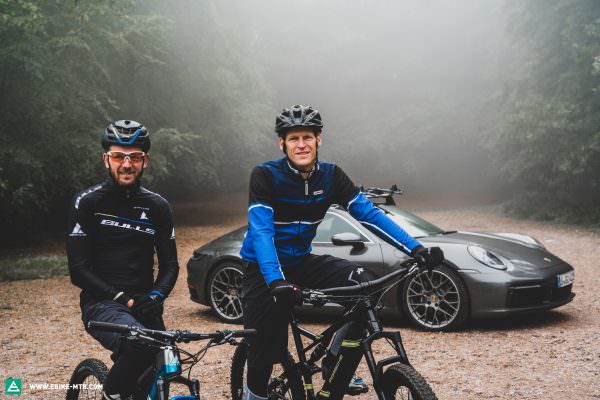
Shit happens. You don’t have to be a pro bike rider to know this. Journalists know it well enough. Imagine the frustration when your hard drive gets wiped just days after the exemplary interview you’ve just carried out with Jörg and Karl. Puff, gone in an instant. Karl, by this point, is already on the island of Elba for a race, Jörg is back at home with his family and we are in Leonberg at the office. Thank you, Skype. We repeat the interview, this time thousands of kilometres apart, virtually, like so much these days. Karl is reclining in a beach chair having just done a recon of the race route for the following day. Jörg has cooked dinner for his family and we are sitting in the office with three recorders at the ready (never make the same mistake twice). Aside from the initial chat, it was virtually a word-for-word recital of the original interview (as far as we can remember). Clearly, consistency whatever the condition is a key trait of pro athletes! And yes, it was just as interesting hearing it all for the second time!
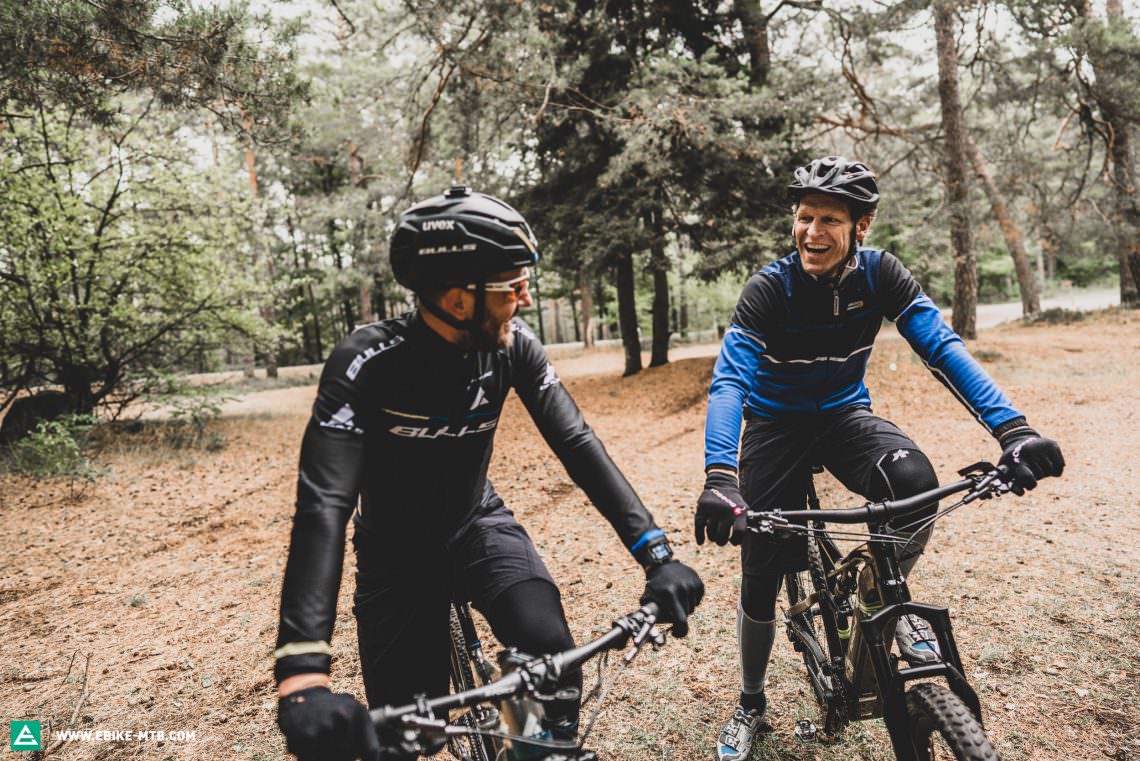
Hobby for one, career for another.
Before we start, you need to meet the two interviewees, whose friendship goes back more than 15 years and who have two common interests. Jörg Bergmeister was basically born behind the wheel – his dad and granddad fed him on a diet of motorsports right from the get-go. He went on to claim victories at classic endurance races like Le Mans, Daytona, Sebring, the Nürburging and Spa. A driver for Porsche since 2002, Jörg took five wins at the American Le Mans Series in a 911 and now, aged 44, is still linked to Porsche as an ambassador while continuing to progress the 911 line through his role as a development driver. When not in a car, he’s probably mountain biking – not just for fitness, but also for fun.
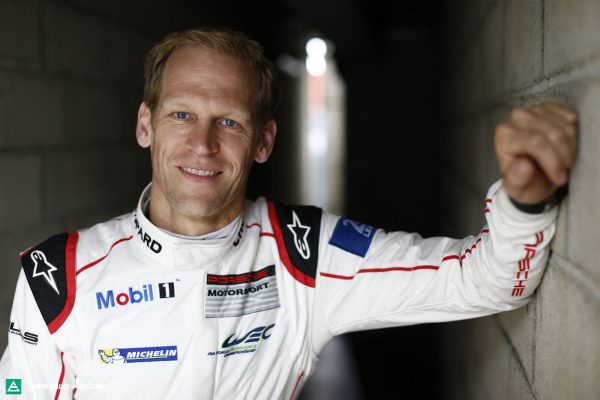
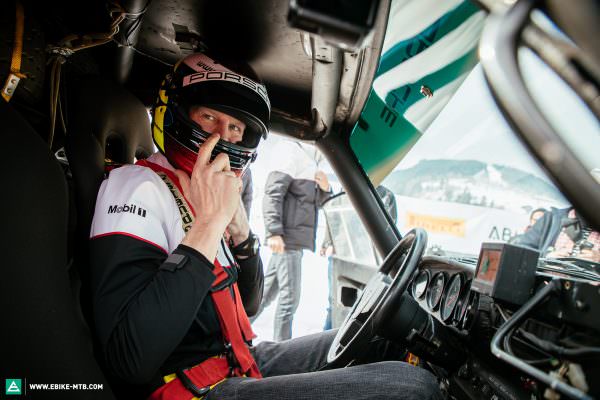
Karl Platt, 42, has known bikes all his life. His first mountain bike was picked from a catalogue at the age of 13 and he joined a local club. The first ten years of his life were spent in Siberia – a fact that many attribute to his resistance and steely determination. But has he always been so willful? The truth is, Platt has dominated the competition since he first started riding – at 18 he was German National Junior Downhill Champion before dominating the world’s cross-country MTB scene. By 2005 he’d moved into MTB marathons, racking up a string of victories. In 2007 he set up Team BULLS, where he still has a formative influence – and not just in between the tapes. The five-time winner of the Absa Cape Epic stage race in South Africa, seven-times Transalp victor and current national Mountain Bike Marathon Masters Champion also harbours a passion for motorsports. The proof: he’s clocked more than 300 laps at the Nürburgring-Nordschleife, most of them in his silver Porsche GT3 first-gen 997.
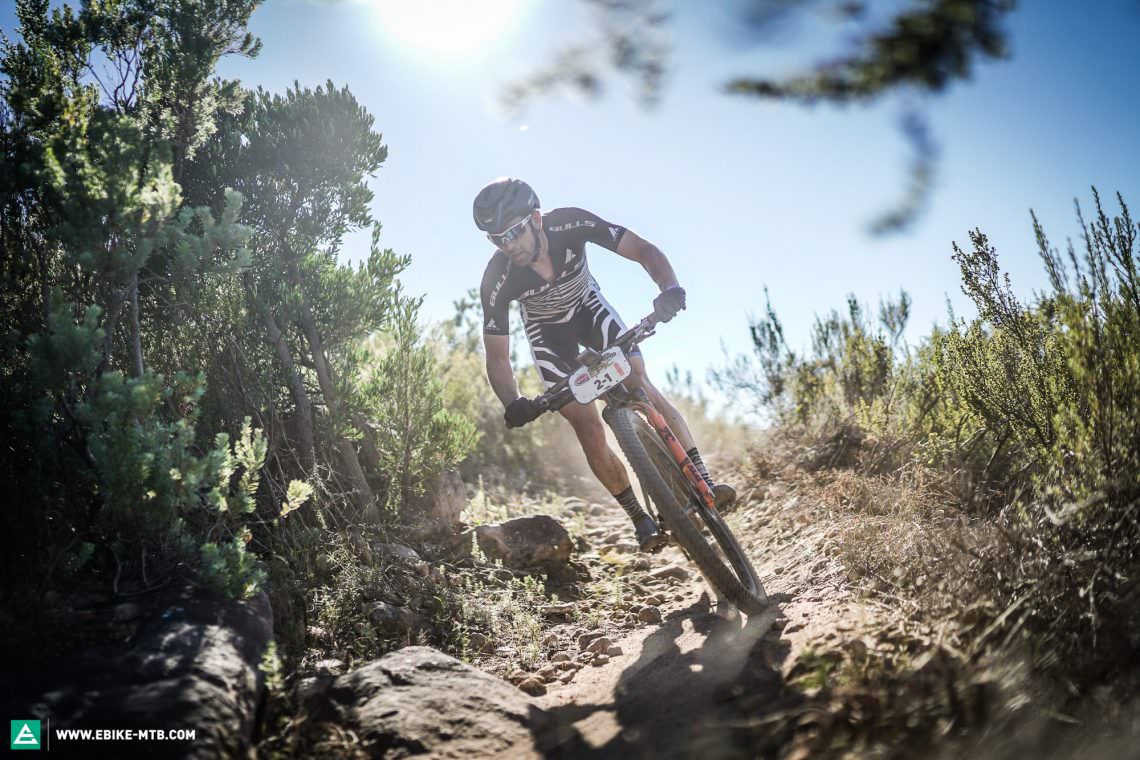
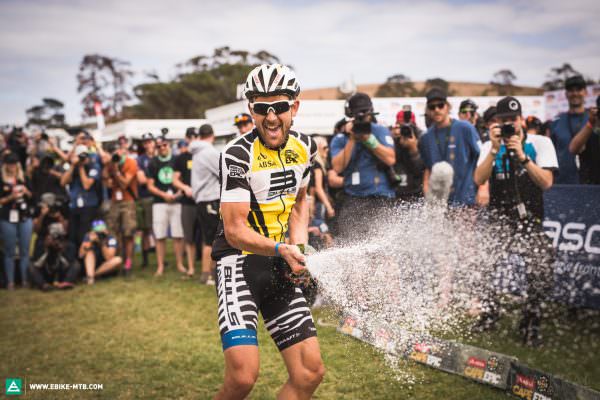
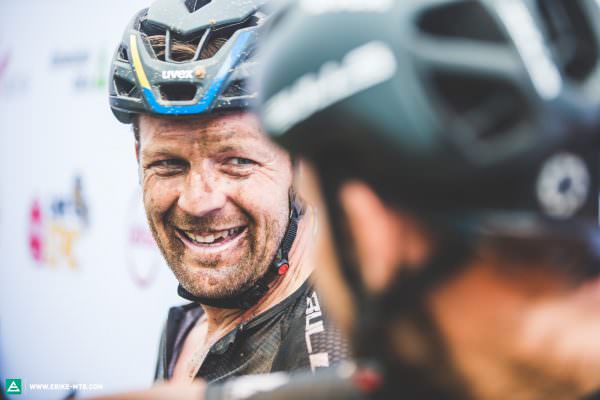
Seeing as you’ve both basically won everything there is to be won,
can you tell us what constitutes success?
Karl: Hm … I can’t think of anything, I’m just here on the beach having a good time…
Jörg: That’s a win in itself.
Karl: True, I’m completely relaxed right now. That’s what it’s like: when you train so hard and ask so much from your body, you also crave a reward from time to time. Success is part of sport. At a level like ours, we aim to win, not to be chasing. Training on the limit is part of the motivation and success only comes if you’ve got goals. But I don’t think success should be narrowed down to one thing. Sometimes you have a great race but it’s not enough for the win, perhaps you take home third, fourth, or fifth. But you gave everything you had on the day, which is also super satisfying. I mean, the top step is obviously brilliant, but winning on its own… I don’t race just to win. There’s a way of life in this cool sport that always makes it so damn fun.
Jörg: I can definitely agree with you on that. You shouldn’t label success based on what position you finish – even though, as a pro athlete, you’re always measured by your results. You can have a seriously great race just by committing and giving 100%. This isn’t always seen as success in the media or in the eyes of spectators, but for the athlete it is.
What is the most defining characteristic for your careers – or, in simple terms:
How do you win Le Mans or the Absa Cape Epic?
Jörg: I basically didn’t have a choice! Even as babies, me and my brother were infected with the bug for motorsports. Granddad raced motorcycles and my dad made the move to four wheels. We got a go-kart when my brother was three and I was still two years old. Dad basically taught us everything you needed to know: it’s all in the details, not just what you’re doing behind the wheel. You have to make sure the team can work well. When that happens all at once, you can bring out the best.
Karl: It was pretty different for me. No one in my family was really into sports, although they weren’t un-sporty per se. I was the first to properly take it up seriously. I think you’ve got to have a certain gene; in order to form the idea that maybe you could do it, that you could reach the top, you’ve got to have a go. Of course, then you have to work on building on your talent and train hard, but the right mentality is super important too. You’ve got to say to yourself: ‘Now I’m ready to go into the red, push myself so hard.’ Train a lot, so you end up clocking something like 30,000 km each year. There’s no other way to get to the top.
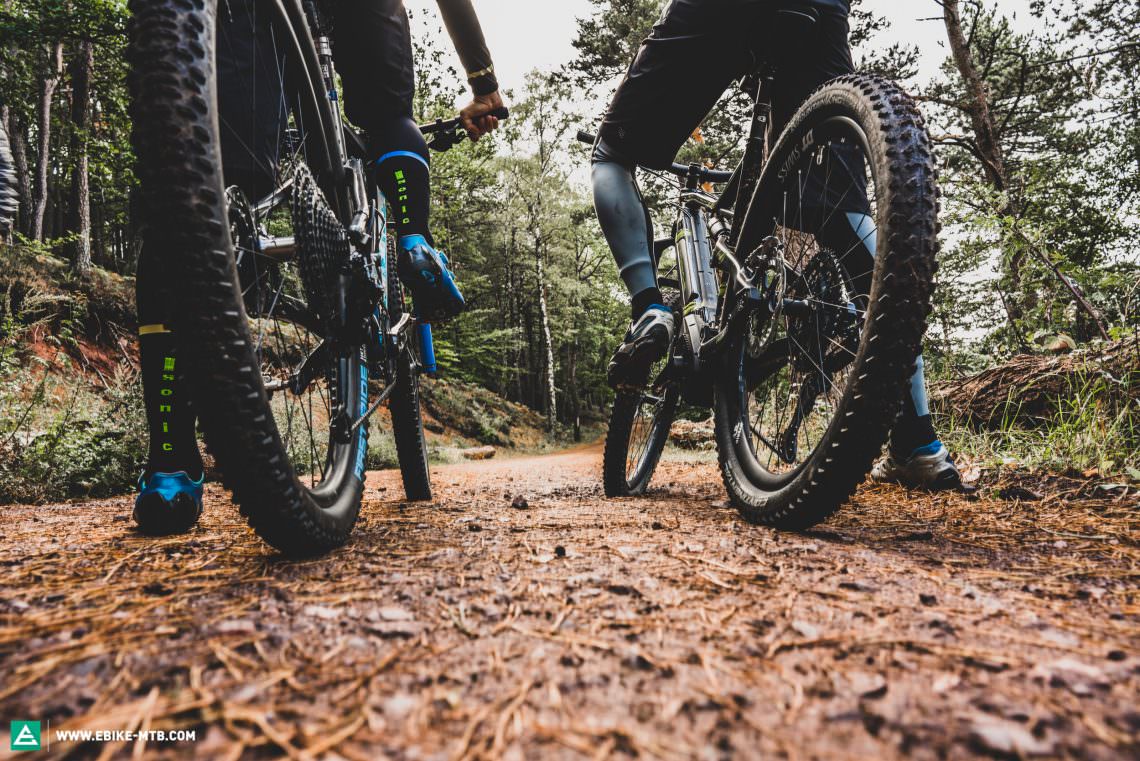
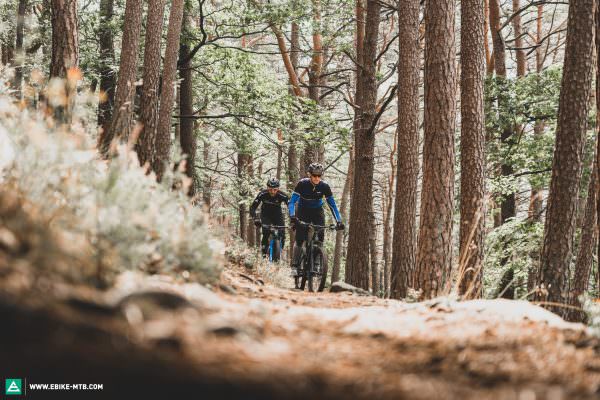
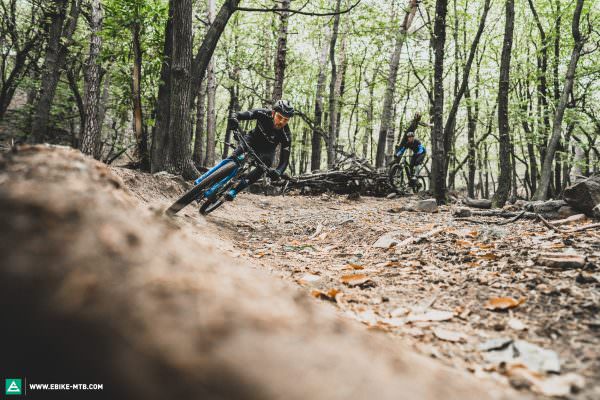
What’s the biggest sacrifice you’ve made?
Are there any defeats that have really stuck in your memory?
Karl: I’m a pretty positive person so I can’t really think of anything I’ve sacrificed. Other people could perhaps say I’ve always put sport first, but I never perceived that as a negative thing. I trained a lot, sure, but I think it’s great seeing what we can do in this sport – it’s better than just bumming around.
Jörg: You’re right. I haven’t made any sacrifices either. I’ve been in motorsports for the past 41 years and I still love it. Sure, there have been times I’ve made mistakes and things haven’t always gone as I’d want them to, but you come out stronger from these situations. This is what differentiates a pro; making the best from every situation, looking ahead. It won’t be the last time, things move on and you can prove yourself at the next opportunity.
Karl: Defeats need to make you strong. Sure, you can fall, but you’ve got to get back up. In sport, in life. Athletes learn this the hard way as you end up losing more races than you win, but it makes you stronger. Each time you screw up, you aim to go harder the next time and show that you can do better.
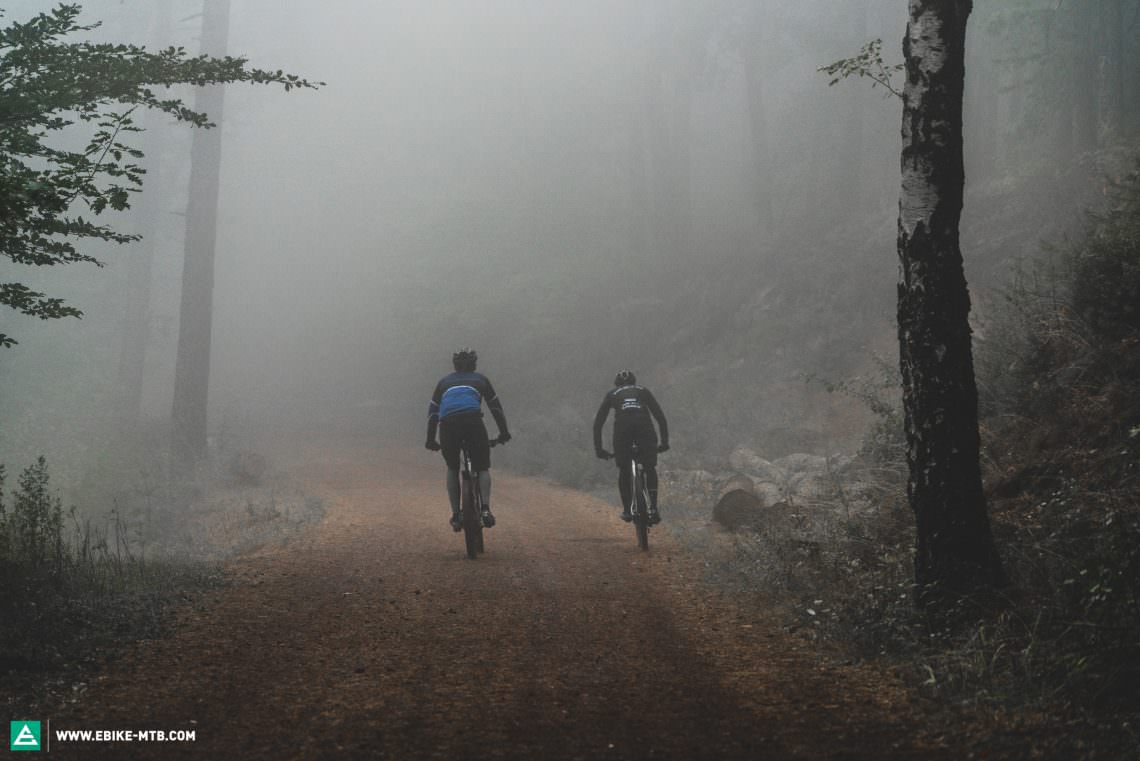
On the topic of our comfort zones: hurtling into a corner at 230 km/h with a concrete wall on the exit, or pushing right into the red in the sweltering heat of South Africa – survival instinct on full or switched off?
Jörg: I’ve always preferred classic courses that challenge the driver and don’t have many run-off zones. Racing in America has always appealed to me for that reason; you find the sort of old-school routes there. Road America has to be my favourite there. It’s super quick, really hilly and really tough. This adds so much to the challenge. You have to know exactly what you’re capable of and fully trust your abilities. This sort of driving is way more interesting to me than the times when you do a lap and if it doesn’t go well, you just go and try the lap again. One exception in Europe is the Nordschleife; that’s amazing.
Karl: [laughs] No second chances on the Nordschleife! You’ll either hit the wall, the crash barriers, or end up somewhere in the trees. My idea of a comfort zone is like this: some races go really well, you’re nailing it, you never push yourself over the edge, and you’re having a blast. It’s a lot about preparation. The better prepared you are, the better the race will go. I’ve also had races where I’ve been so far into the red right from the gun. Every second hurts. At times like this, you have to learn how to turn off the voice inside your head – or learn how to manipulate it just to make it to the finish. Situations like this aren’t uncommon in cycling. I think it takes a certain skill to say: ‘Ok, quit thinking, just pedal.’
Jörg: Dig in! Toughen up!
Karl: Exactly, toughen up.
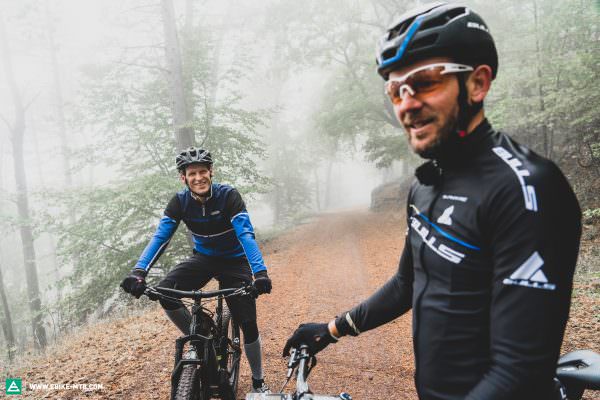
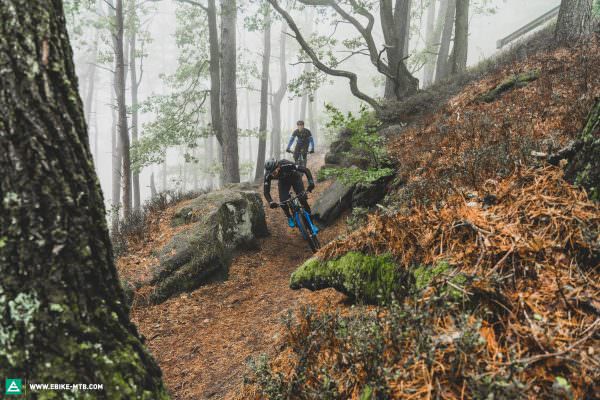
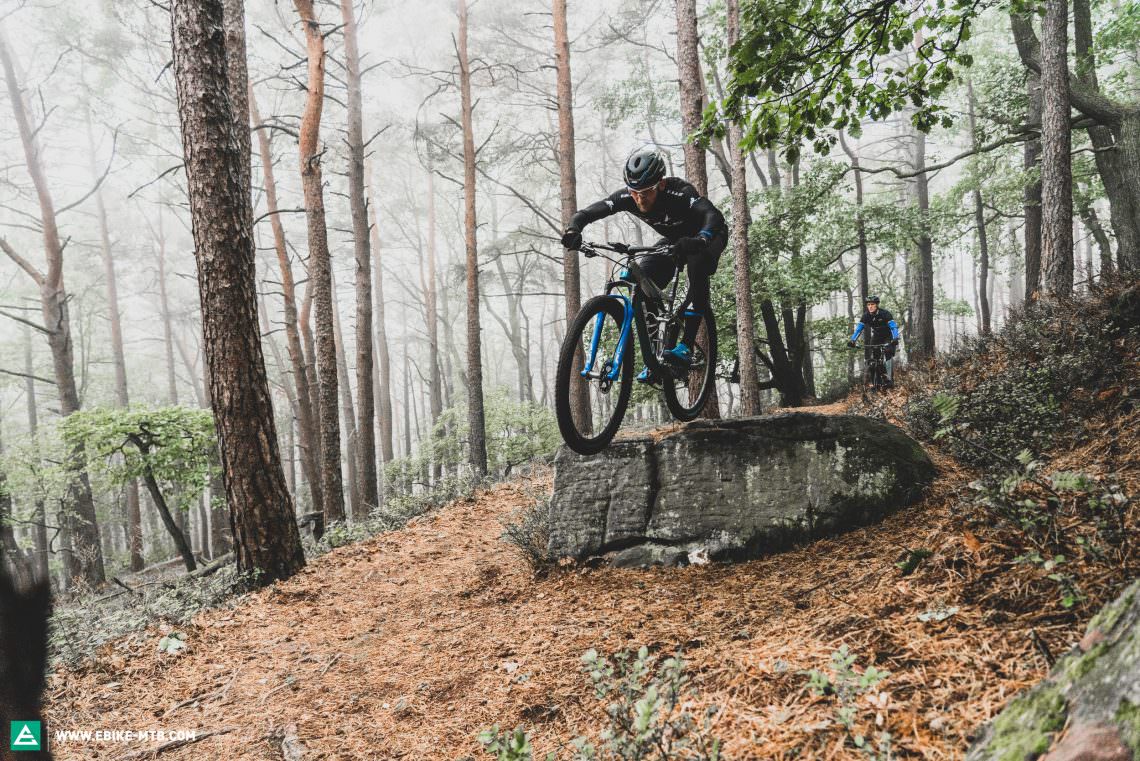
As pros, preparation and planning are standard, but how do you deal with unpredictable events that are pretty much inevitable in your sports?
Karl: I love improvising. I’m not much of a planner. I’m well attuned when it comes to observing the goings-on and knowing when to make a move. I plan everything, but also stay flexible. Training should be planned over the course of weeks, but it doesn’t need to be strict. If I don’t feel at my best then I’ll skip the hard session that could’ve been on the calendar and do something easier. If I’d written it down as a concrete plan it might feel more restrictive and your good intentions could backfire. I’m quite intuitive and look inwards when it comes to deciding what the right course of action is.
Jörg: The world of motorsports is a lot like that. You make a pre-race strategy with the engineers but usually, the event unfolds completely differently with crashes or neutralisations behind the safety car. This is when you’ve got to be able to react, not be too rigid; it’s not easy. I think cycling’s a lot like cars in that sense; if you’re busy trying to use a large chunk of your brain just riding in a certain way, then you’re not able to respond to what’s happening in the race right now.
They say that success can be addictive, so how do you know when the right moment is to step away from the sport and all the wins? Jörg, you’ve already retired but Karl you’re still toying with the idea, right…? How hard is the decision?
Karl: You’ll have to physically take me off the bike to get me to stop. Interestingly though, this season – what with Corona and the lockdown – I’ve got to know a different side of life. It’s been nice discovering that you don’t have to travel to a race, every weekend. Cycling will stay with me though – it’s a way of life. I’ll probably always ride a bike. I plan to do some more masters races in the next few years, so it’s obviously hard for me to properly step back. Other pros talk about ‘this or that being their final race’, and then they’re out of the sport, but I can’t do that. I love it; mountain biking is my life. You can’t take a bike away from me. I think it’s pretty similar for you, Jörg? It’d be hard to get you out of a car. I’ve seen how your hands and your accelerator foot take on a life of their own as soon as you’re in the driver’s seat.
Jörg: [laughs] My love for motorsports won’t die, but I’ve always promised myself that I’ll quit when I realise that I’ve lost the speed, that I’m just not quick enough any more. I don’t want to reach the stage where someone says ‘Oh, he’s past it.’ When Porsche asked me to step into development after winning the WEC last year was a fantastic opportunity. The first part of my career – driving professionally – was a dream, and now I’m in the second act and it’s just as much fun. I still get to sit in a car and drive the race tracks, but the focus has shifted somewhat. On the whole, I’m stoked with how it’s going.
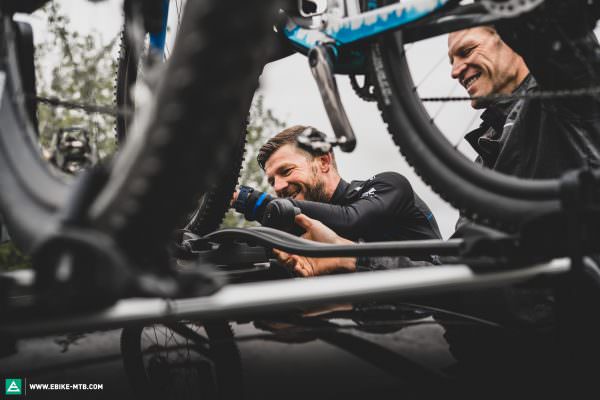
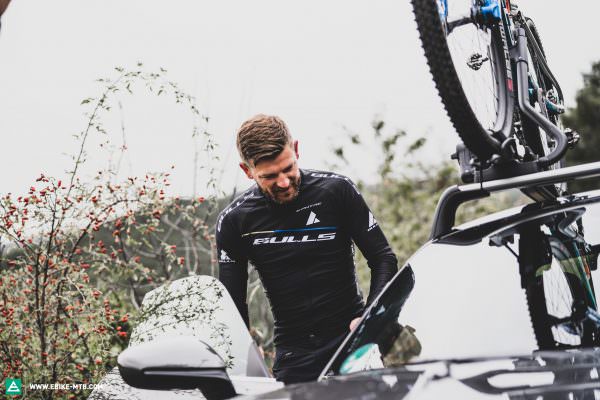
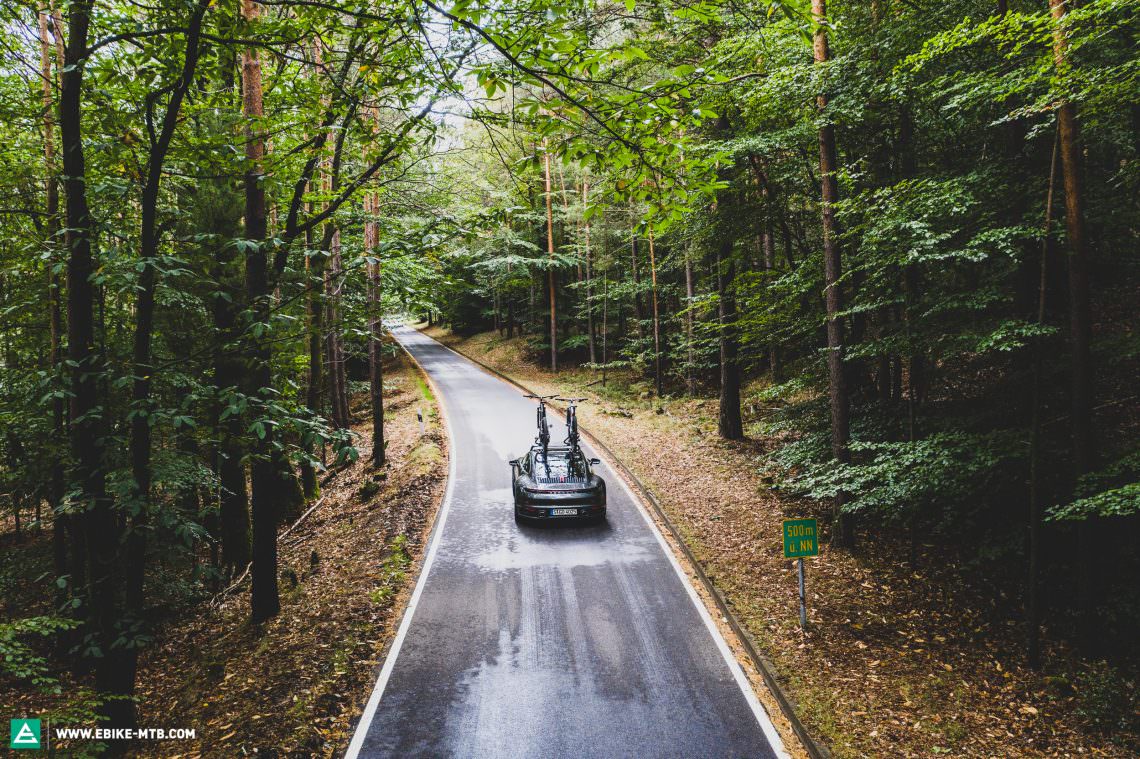
Any tips for us mere humans – how can we be better, faster, safer on our bikes and in cars?
Jörg: My grandma always said: Don’t drive any quicker than your guardian angel can.
Karl: [laugh] My grandma used to say that too!
Jörg: On public roads, the main thing is always to drive under the speed limit. I’d recommend advanced driving training for safety too; I think these should be mandatory at regular intervals. So important to keep you safe, plus it helps you get to know your vehicle and how you and the car go together.
Karl: Yes, agreed, that’d prevent a lot of preventable accidents. People need to realise that even at 15km/h you can be thrown out of the car if you hit something. It’s unimaginable. You’re going at slower speeds in cycling so when you crash you mainly get bruised, but you can also break bones. It’s really important to stay in your comfort zone and have fun. Sure, it can be thrilling to push your limits and feel the adrenaline kick, but you’ve got to be able to reign it in when necessary. Fun is the key word here. There are so many tensed-up riders out there looking for a needle in a haystack, not able to see the bigger picture. When you’re enjoying what you’re doing, the success is already there.
Super cool, thanks for the interviews and great insights! We had a blast on two and four wheels when we met in Germany, and this online chat has been a pleasure!
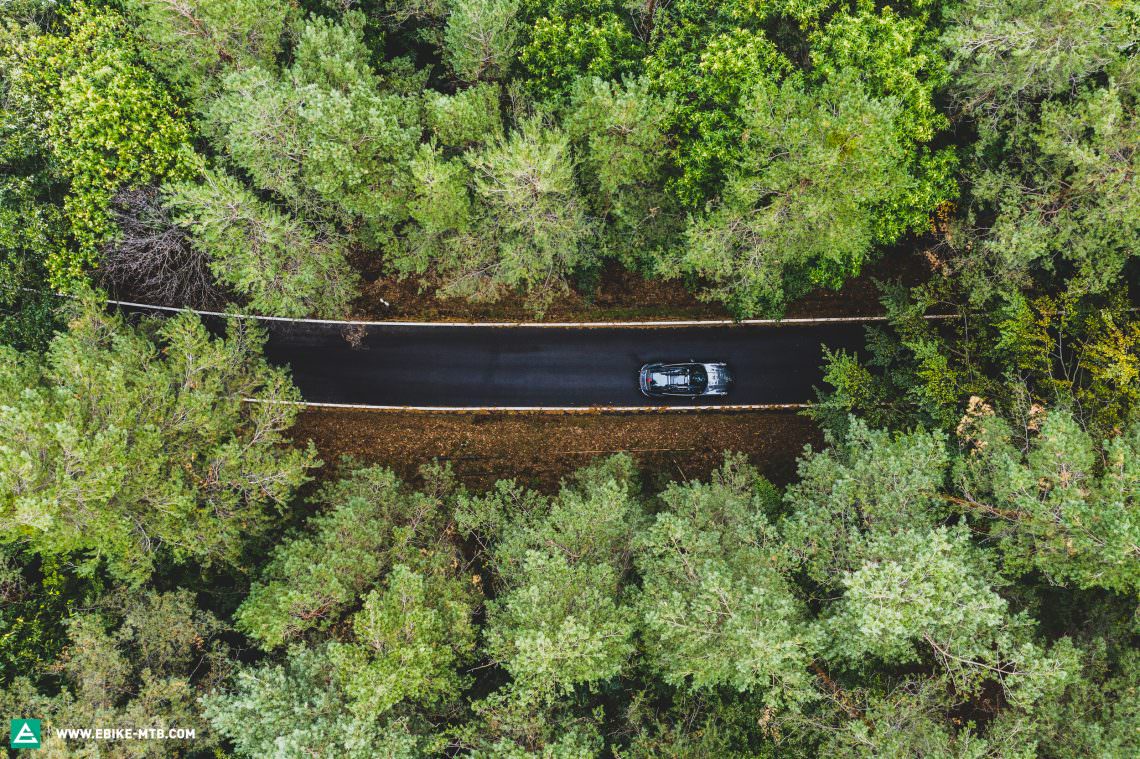
Did you enjoy this article? If so, we would be stoked if you decide to support us with a monthly contribution. By becoming a supporter of E-MOUNTAINBIKE, you will help secure a sustainable future for high-quality cycling journalism. Click here to learn more.
Words: Robin Schmitt Photos: Manuel Hollenbach/Rightlight Media



